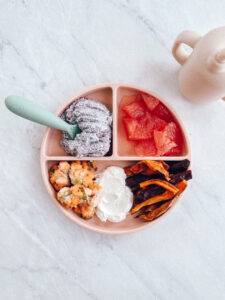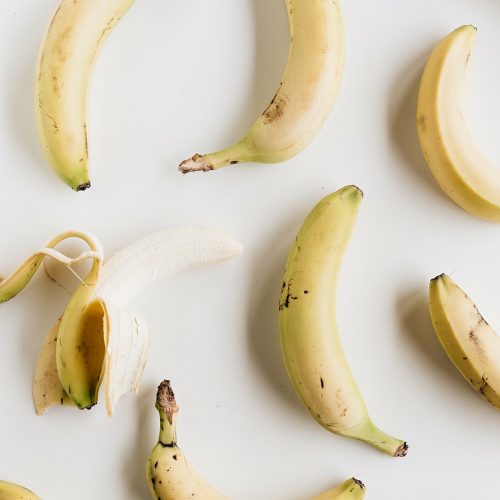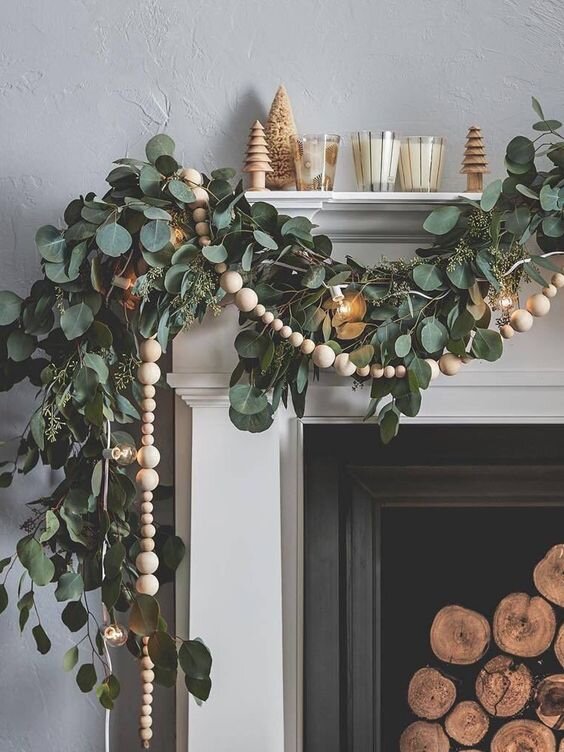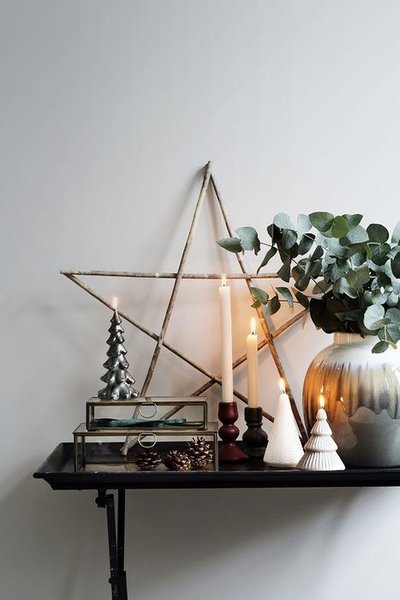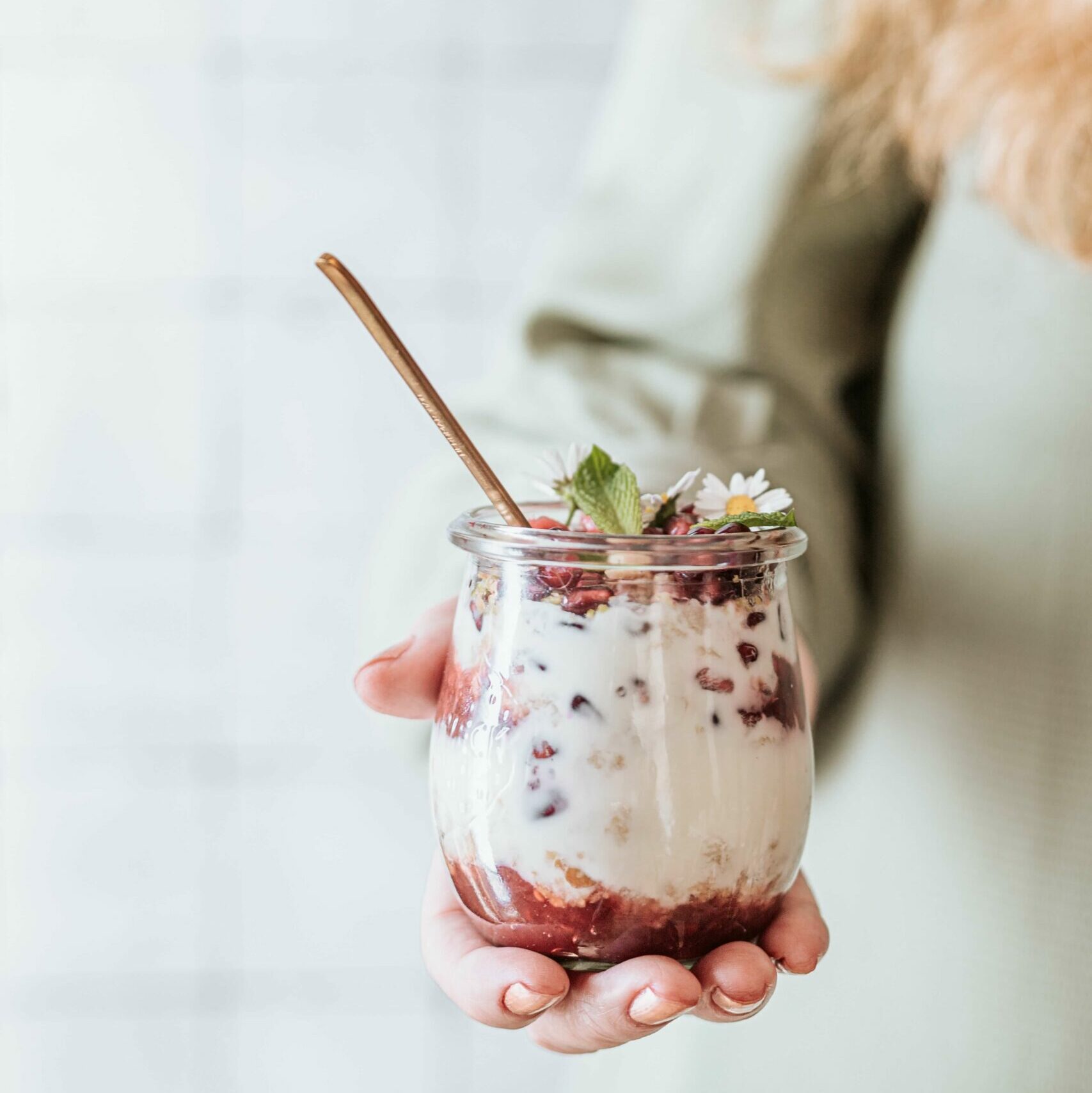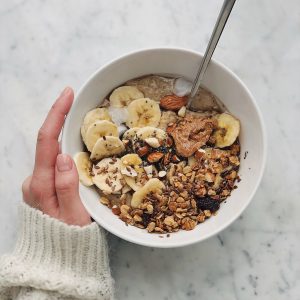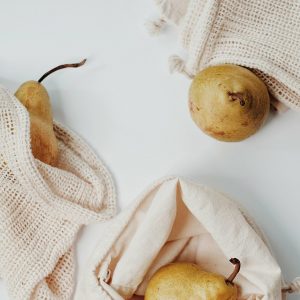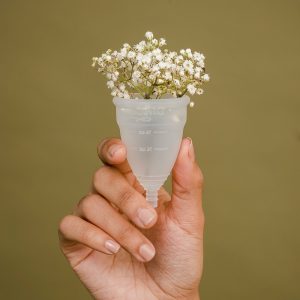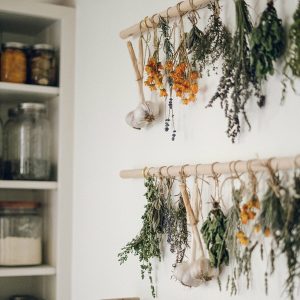Knowing how to make the best herbal tea recipes at home is a great skill to have. Not only can you customize your herbal tea recipes to your own tastes and health needs, but you can also save money by buying higher quality herbs and tea in bulk to mix into your own homemade herbal tea recipes whenever you like!
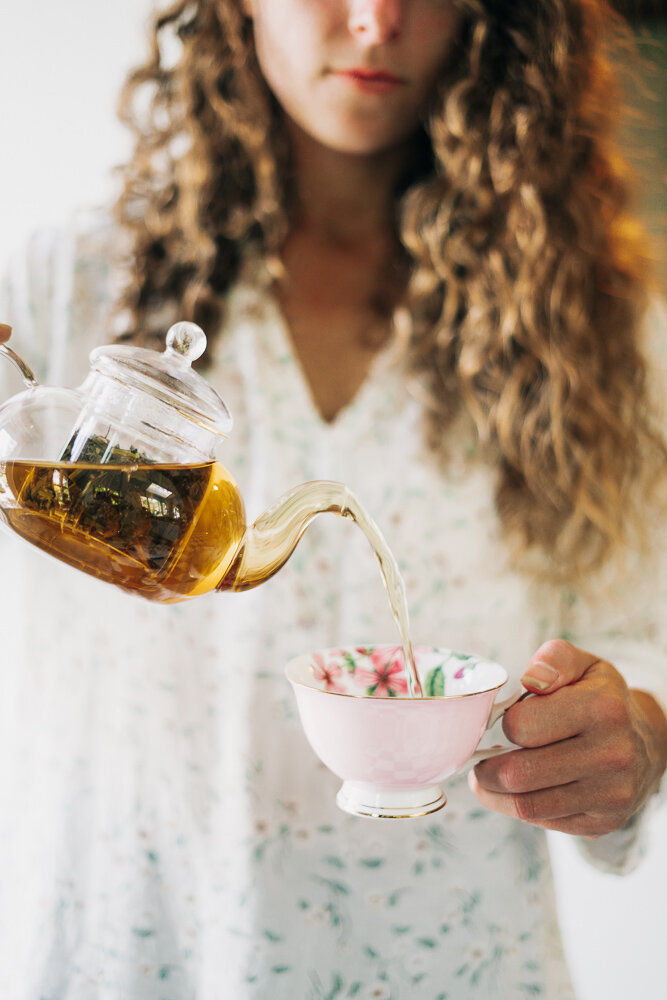
Why Make Your Own Herbal Tea Recipes At Home?
As a holistic dietitian, one of my favorite ways to connect with nature and the healing powers she possesses is through herbal medicine — and my favorite type of herbal medicine will always be herbal tea blends.
Herbal tea recipes have been used for centuries and are one of the oldest forms of herbalism that we have recorded. They have been used for everything from immune system support during the colder months, to digestive aids, sleep support, and many more.
While herbalism research is limited in regards to the specific therapeutic benefits of most herbs (mostly due to a lack of funding) we have a wealth of anecdotal and historical evidence to support the use and health benefits of herbs in our daily lives.
What’s even lovelier about including our own herbal teas in our daily lives is that the practice of preparing a soothing drink of herbal tea is something that many of us will naturally reach for when we need a little comfort. The art of boiling water, steeping tea, and then sitting down to enjoy a cozy cup is something that nourishes our soul and calms our stress hormones, even before the actual healing herbs ever begin to do their work.
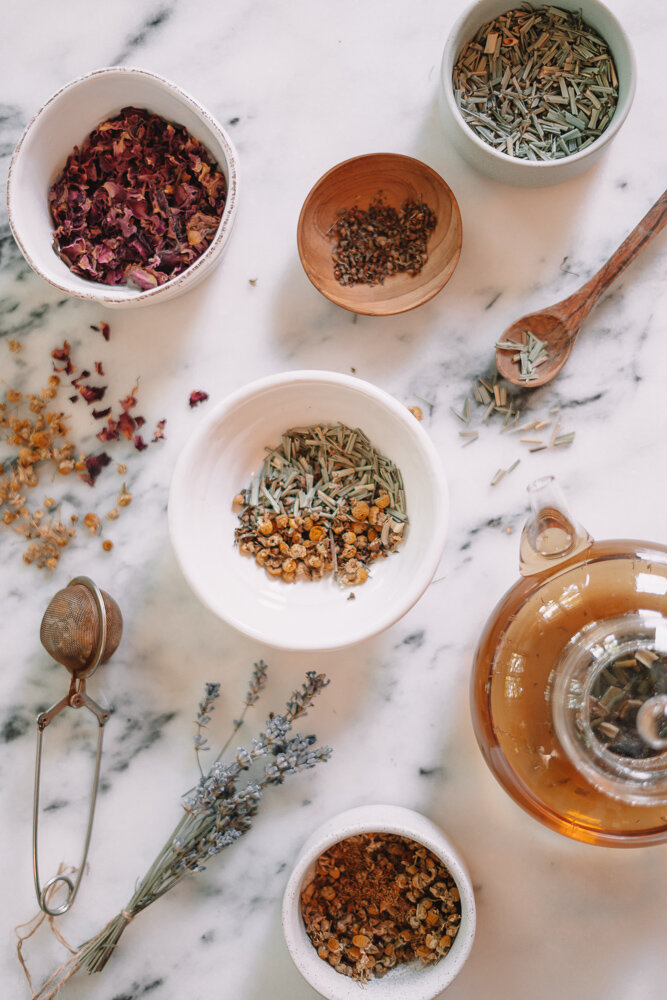
What Are Herbal Tea Recipes?
Herbal tea recipes are a combination of a variety of either previously dried or fresh herbs, spices, berries, barks, roots, and flowers that are steeped in boiling water in the same way one would tea leaves, and consumed to support a wide variety of symptoms and improve overall wellness.
What makes herbal tea recipes different from traditional black, green, oolong, or rooibos teas is that often no tea leaves are used in the making of herbal tea blends. Instead, herbal tea recipes use an infusion of herbs focused on supporting specific health goals like improved digestion, better sleep, or decreased stress.
Herbal tea recipes are one of the safest and most accessible ways that the average person can utilize healing herbs in their daily lives. Whether that is combining ginger root, lemon balm, and chamomile flowers for soothing the digestive system, or raspberry leaf to support the late stages of pregnancy and labor, herbal tea recipes can play a wonderful part in supporting holistic well-being.
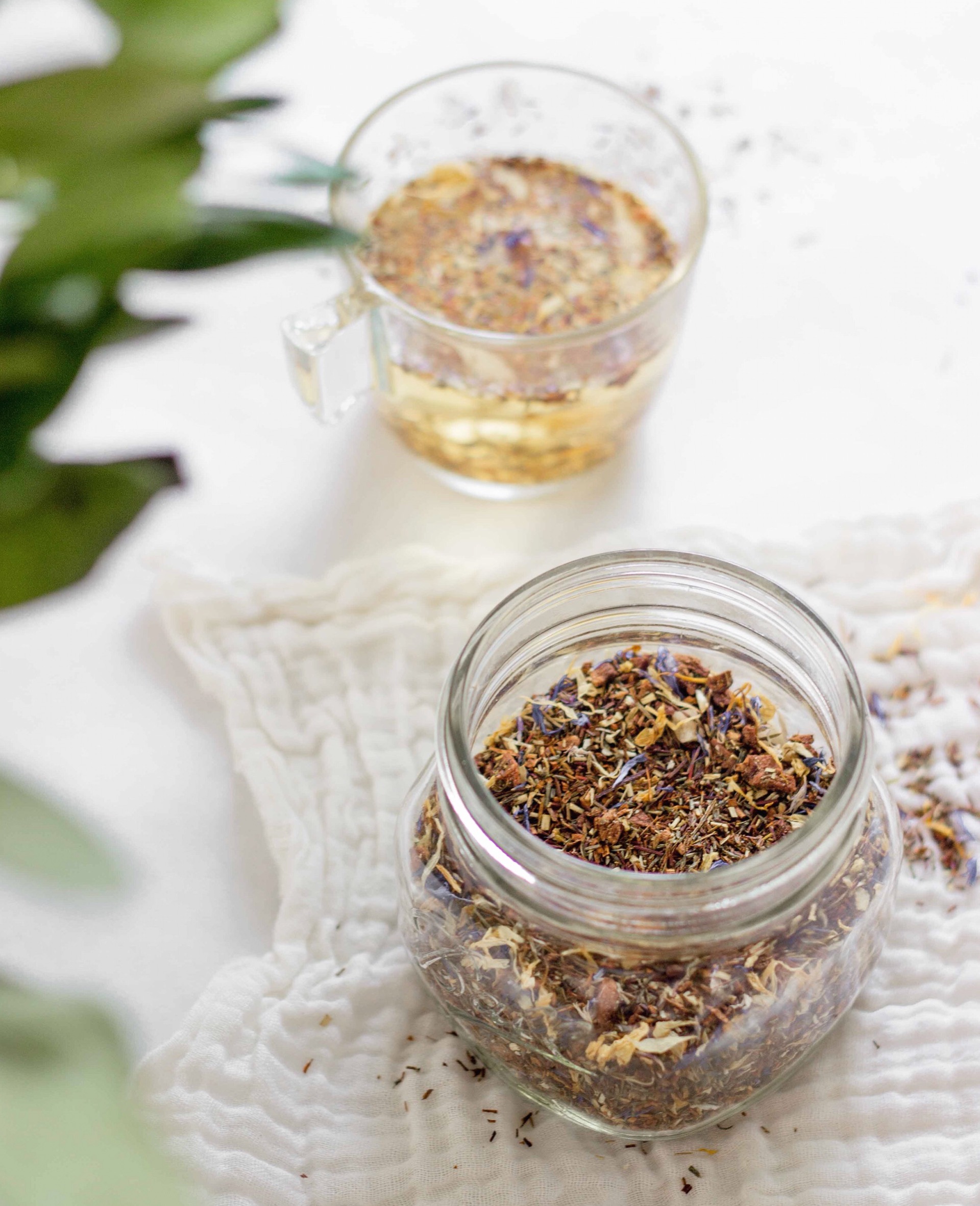
Benefits of Herbal Tea
There are endless benefits to making herbal tea recipes at home, but my favorite benefit of herbal tea is the way it connects the individual with the long-standing history of herbal medicine.
Because herbal medicine and the medicinal properties of herbs and plants is something that people have utilized for centuries, incorporating herbal medicine in the form of herbal tea into your daily life is an excellent way to both support your health AND connect with the benefits of nature.
Some of the most common benefits that can be found from herbal tea recipes are:
- Alleviating a sore throat
- Supporting a strong immune system
- Calming the nervous system
- Alleviating menstrual cramps and supporting the uterus in pregnancy
- Supporting the digestive tract and alleviating upset stomach
- Antioxidant properties
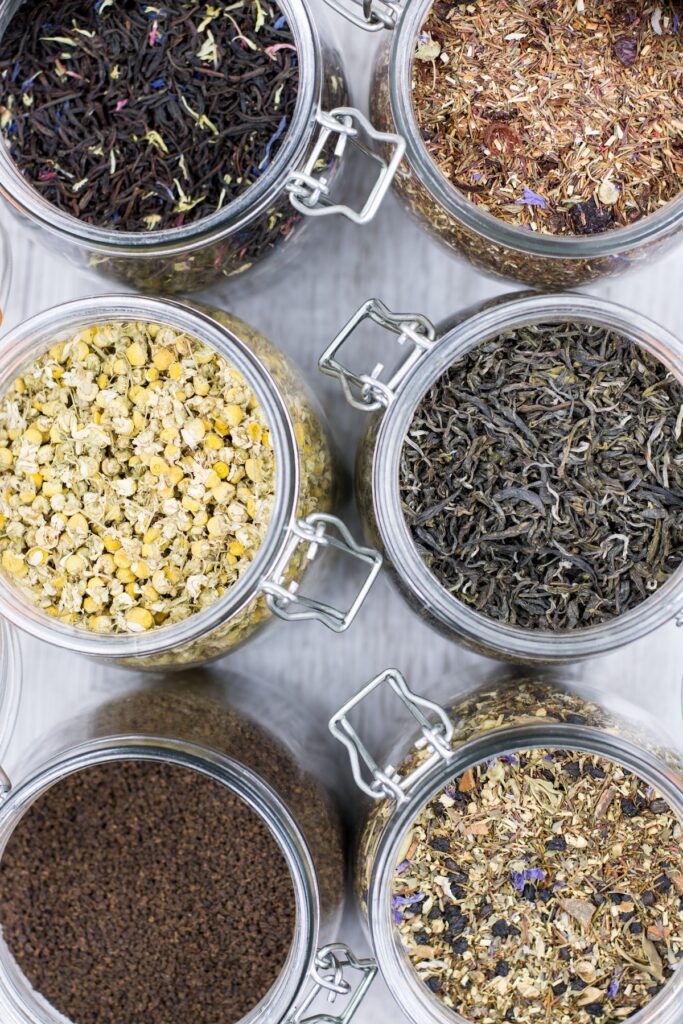
Best Medicinal Herbs For Homemade Herbal Tea Recipes
There are an endless variety of medicinal herbs, flowers, roots, barks, teas, and spices that you can utilize and incorporate into your homemade herbal tea recipes, but the following are a few of my favorites to help get you started. Since some herbs can interact with different medications it is always important to speak with your health care provider before adding any medicinal herbs into your daily routine.
Luckily, the medicinal properties in herbs when consumed as tea generally tend to be considered safe overall, unless consumed in large quantities.
By creating a small herbal apothecary with different herbs in your home, you can begin to make your own herbal tea recipes for the specific purpose you desire. You also can have better control over the quality, and freshness of the herbs you use when you use your own herbs at home.
Want to learn more about making a home herbal apothecary? Check out how I created my own home herbal apothecary here and the best healing herbs to include.
Holy Basil
If I had to pick only one herb to keep in my home herbal apothecary then holy basil (or tulsi) may very well be it. What I love about holy basil is that it is a powerful adaptogenic herb that is incredible for mitigating stress in the body and also has the most delicious flavor and scent that immediately activates a sense of calm and balance.
I love growing holy basil in my garden and find that the dried Holy Basil from Arbor Teas is just as powerful!
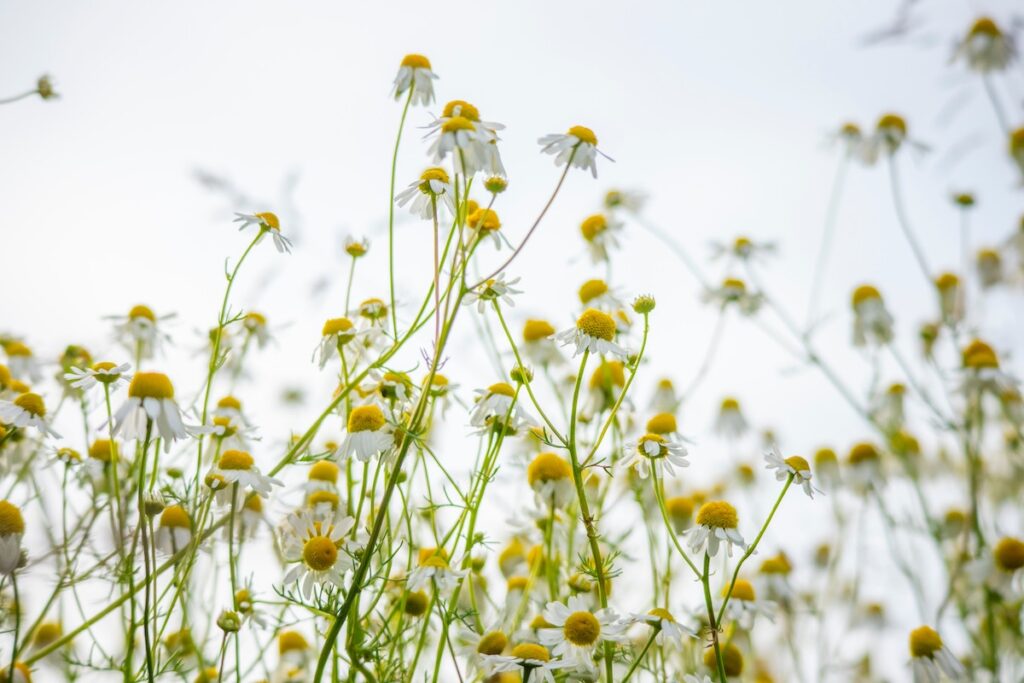
Chamomile
Chamomile is another herb/flower that I love to grow in the garden because it’s delicate daisy like flower and scent immediately brings me back to the tea with honey my mom would make when I wasn’t feeling well or needed a little comfort growing up.
Chamomile is also excellent for supporting digestive health, promoting a good nights sleep, and reducing feelings of anxiety, which makes it a great herb to have on hand for many different herbal tea blends.
Lemon Grass
After all my travels in Southeast Asia I couldn’t not fall deeply in love with this incredible herb. Again this is another herb that I love to grow in my garden, but I find that the dried Lemon Grass from Arbor Teas is of equally high quality. Lemongrass is excellent for it’s calming scent and is often used in aromatherapy. It is also an excellent herb for supporting digestive health.
Hibiscus Flowers
Hibiscus tea is one of my favorite antioxidant-rich herbs to include in an at-home herbal apothecary. Specifically, hibiscus is high in anthocyanins and polyphenols, which help combat oxidative stress that can contribute to cell damage and various chronic diseases. Several studies have also suggested that hibiscus tea may help lower blood pressure levels, and help improve cholesterol levels by reducing LDL cholesterol and triglycerides.
I love adding hibiscus flowers to many of my herbal tea blends as a delicious and antioxidant-rich accent and personally find that it pairs especially well with holy basil, mint, and lemongrass.
Echinacea Root
You most likely have heard of echinacea root before due to it’s popularity in supporting immune health, especially during cold and flu season. While there are many herbs that can help support immune health, echinacea is one that is great to begin with and well recieved by kids and adults alike.
Nettle Leaf
If you struggle with seasonal allergies and other types of histamine sensitivity then Nettle Leaf is going to become your best herbal ally and a must for your home herbal apothecary.
Peppermint
Peppermint is a classic herb and one that is excellent for supporting digestive health, and a great accent herb to add to many herbal tea blends for a little pop of flavor.
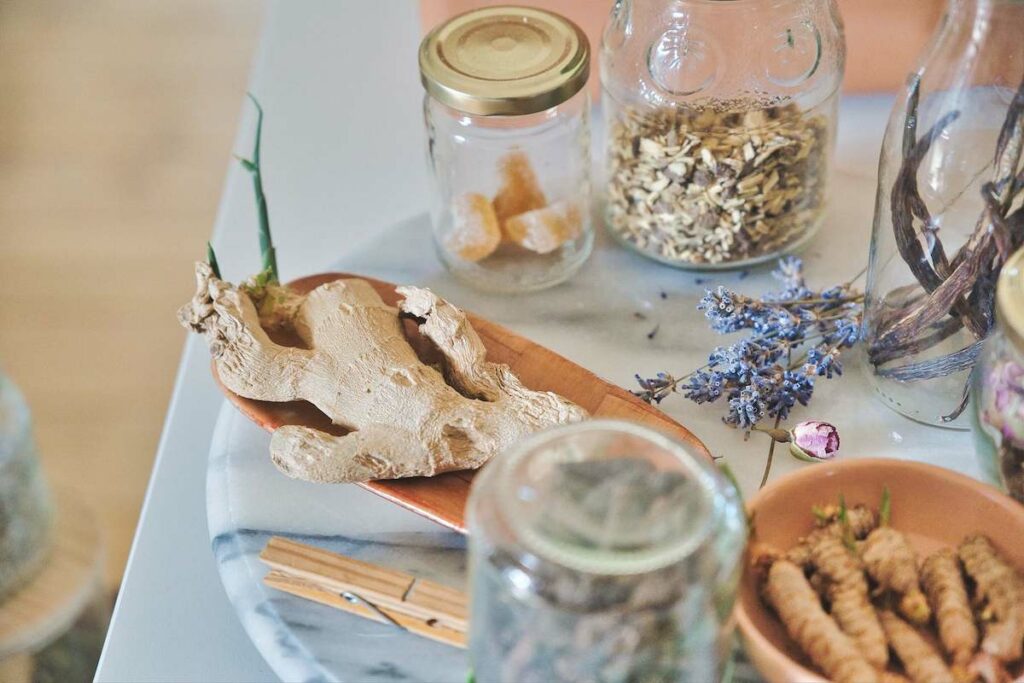
Ginger root
Ginger root is a popular and widely used spice and herbal remedy that has a long history of culinary and medicinal use, particularly in traditional and alternative medicine systems. Ginger has a distinctive spicy, aromatic flavor and is associated with a range of potential health benefits.
Most often ginger is used for its long history of alleviating nausea and vomiting, as well as helping with motion sickness and morning sickness during pregnancy. It also is a commonly used digestive aid and can help stimulate the production of digestive enzymes to help improve food absorption and alleviate indigestion, bloating, and nausea. Its anti-inflammatory properties also make it an herb excellent for helping to reduce inflammation in the body.
Dandelion Root
Dandelion root, sourced from the common dandelion plant is a nutrient-rich herbal remedy with a history of traditional use for various health purposes. Rich in vitamins, minerals, and antioxidants, dandelion root offers a range of potential benefits. While dandelions can be found growing natively, it is important to always source dandelion roots from a known source free of pesticides.
Dandelion root is renowned for its positive impact on liver health and traditionally has been used to support liver detoxification by promoting bile production. Additionally, dandelion root is often used as a digestive aid to help alleviate indigestion and soothe GI discomfort.
Preliminary studies suggest that dandelion root might assist in managing blood sugar levels, making it potentially beneficial for individuals with diabetes. Its anti-inflammatory properties may also contribute to joint health and provide relief from mild pain.
Raspberry Leaf
Raspberry leaf is renowned for its potential women’s health benefits. Rich in vitamins, minerals, and compounds like tannins, raspberry leaf has been traditionally used to support women’s reproductive health.
While often recommended to begin consuming later in pregnancy in the third trimester, raspberry leaf is believed to promote uterine muscle health and potentially ease labor. Raspberry leaf is also believed to tone and strengthen the uterus, potentially aiding in smoother menstrual cycles and reducing menstrual cramps.
Pregnant individuals should always consult healthcare providers before using raspberry leaf during pregnancy to ensure safe and appropriate usage.
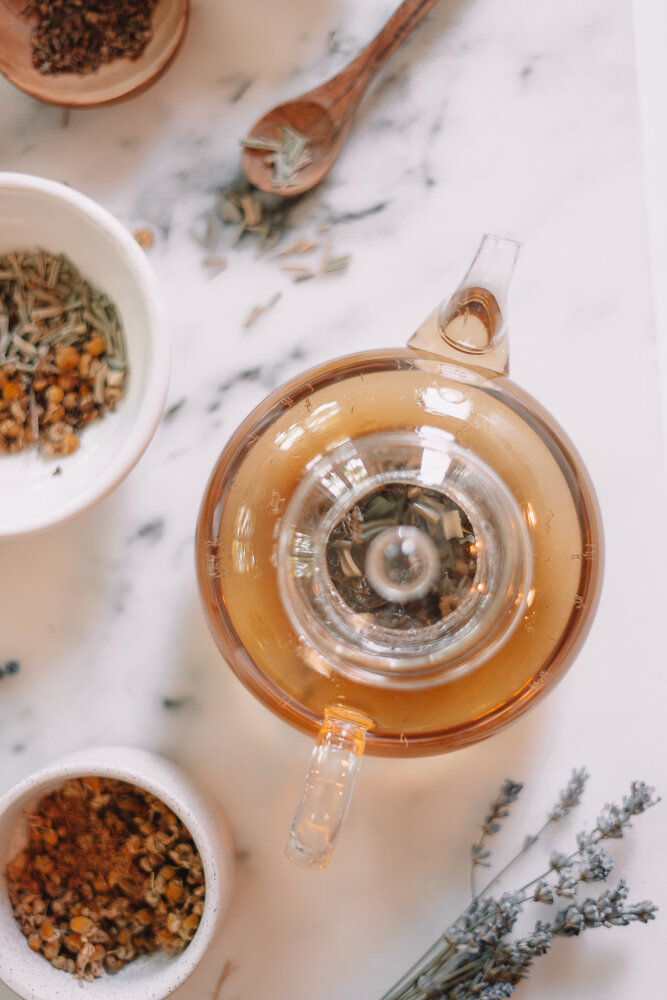
How To Make Homemade Herbal Tea Recipes
While there are many ways to formulate your own tea blends, I personally like to keep my herbal tea blends to no more than three herbs and then potentially complement with additional seasonal spices for flavor if desired. This is because when you are blending herbs together you want to be intentional about the purpose that each herb will provide and how the varying herbs will benefit one another.
Once you start blending more than three herbs together at a time the concentration of each herb’s specific purpose becomes diluted, making it more difficult to achieve the desired benefits you are looking to use the herbs for in the first place.
I’d prefer to blend a wide variety of separate tea blends to utilize for various purposes than try and pack too many herbs together in one blend.
For this reason, I like to follow a three-part formula:
- Base (the main herb/action)
- Compliment (the supporting herb/action)
- Accent (the cherry on top)
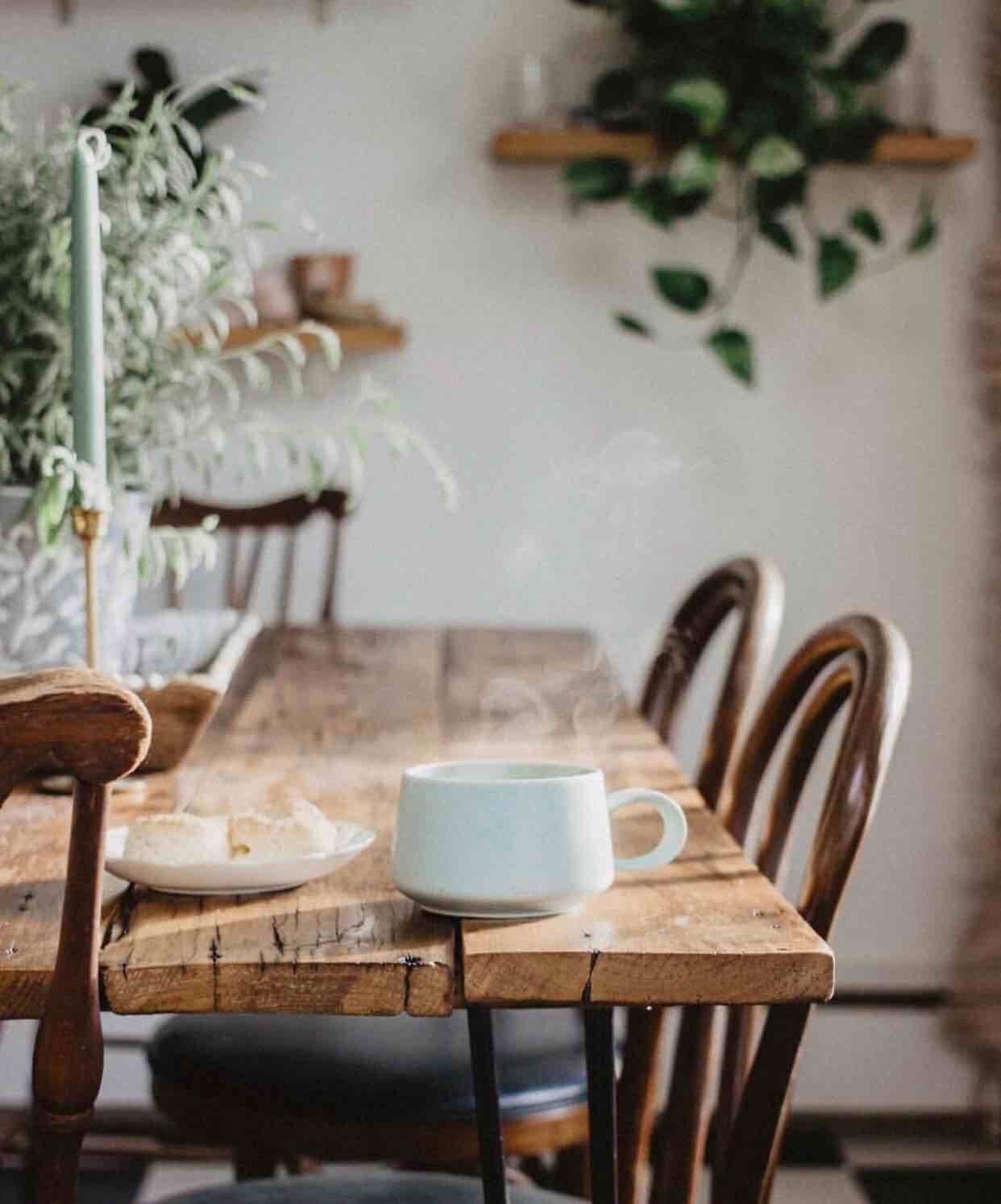
Homemade Formula For The Best Herbal Tea Recipes
Before you start any herbal tea blend formulation you first need to think about what your primary goal is for the tea blend before you even begin reaching for your different herbs.
For example: If you are looking to reduce stress and anxiety then you may want to consider reaching for adaptogenic herbs like tulsi, or calming herbs like chamomile and lemongrass.
Base (3 parts)
Your base herb should be the herb that will be the main focus of your tea. This herb and it’s beneficial properties should be what you are most looking to achieve out of the tea and what you want to highlight the most in your herbal blend. This herb can change from blend to blend, and may sometimes be used as a compliment or accent herb.
This is where studying different herbs and their herbal properties can become very helpful so you know immediately what herbs you want to reach for as your base when supporting immune health, digestion, stress relief, hormonal balance, etc.
Compliment (1-2 parts)
The compliment herb is the second strongest herb in your herbal formula and should compliment the base herb. If the base herb doesn’t have a very good taste, this is also a nice way to combine a better-tasting complimentary herb into your formula to help improve the palatability of your herbal tea blend.
The compliment herb could also act to address any secondary concern you may have that you are looking to support with your tea. For instance, if your main focus for the tea is to reduce stress, but you also know that digestive issues are a concern, you could choose an adaptogenic herb for your base, and a carminative herb for supporting digestive health as your complimenting herb.
Accent (1/2 – 1 part)
Accent herbs are the cherry on top in your herbal tea blend that bring the entire formulation together. These herbs often don’t need to be used in as high quantities and may have a strong flavor where a little goes a long way.
Some examples of good accent herbs would be:
- Peppermint
- Spearmint
- Lemon Peel
- Lavender
- Cinnamon
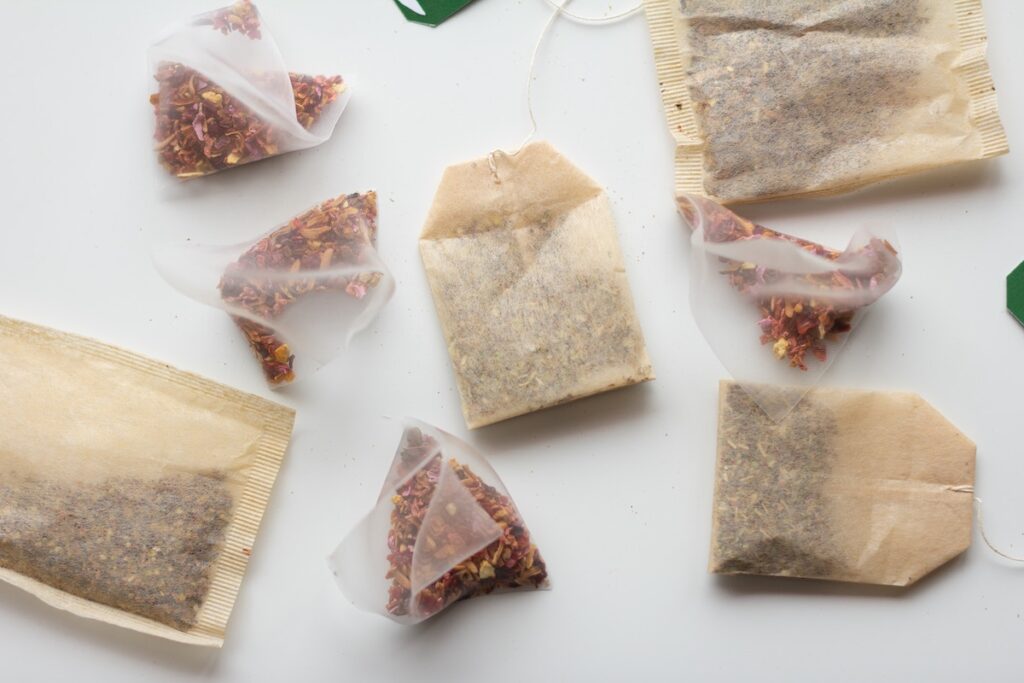
How To Choose The Right Teas For Your Herbal Tea Blends
By becoming more in tune with the many herbs available to you and what their common and overlapping benefits and properties are you will quickly become more in tune with choosing the right herbs for your specific needs and homemade tea blends.
Since every tea formulation is unique there is no way to create a list of specific base, compliment, and accent herbs, which is why I would highly recommend purchasing one of the following herbal books from your local bookstore that can help you become more familiar with herbs and their specific purposes.
- Encyclopedia Of Modern Herbal Medicine
- The Modern Herbal Dispensary
- The Herbal Apothecary
- The Herbarium From The Herbal Academy
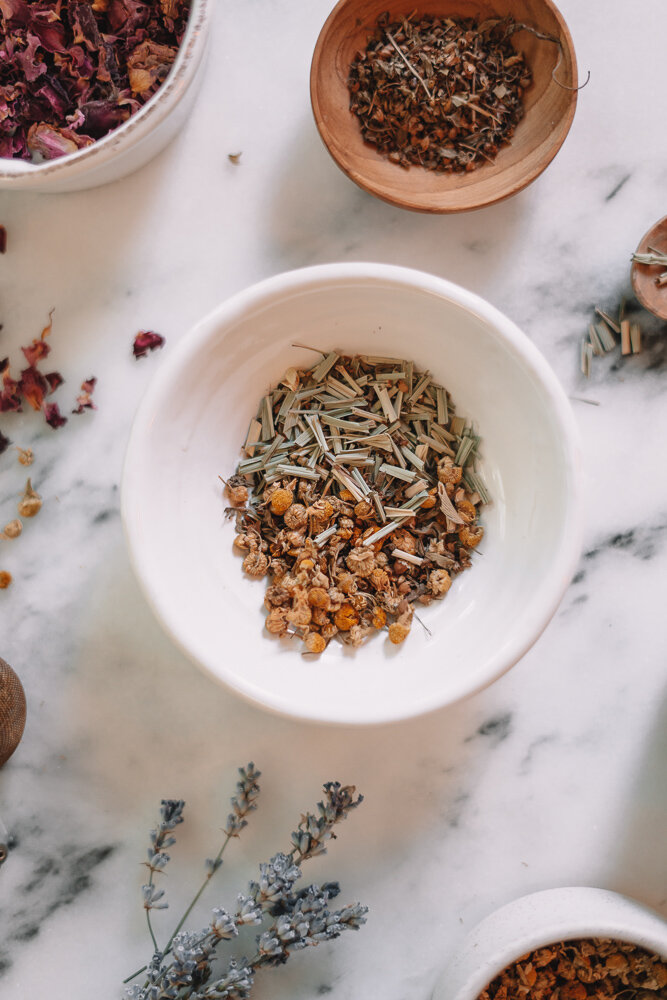
Seasonal Stress Relief Herbal Tea Blend
This stress relief herbal tea blend is perfect for reducing daily stress, calming anxiety, and improving balance in the body. It has a wonderful aroma and can be enjoyed throughout the day to promote relaxation or sipped before bedtime to help encourage a good night’s sleep.
Ingredients
- 3 parts Chamomile
- 2 parts Lemon Grass
- 1 part Holy Basil
Directions
- Combine all herbs together in a small jar or tea strainer.
- Next, bring water to boil and pour boiling over over herbs.
- Cover your herbal infusion to trap all the beneficial oils and herbal properties in the water.
- Allow to steep for 5-7 minutes before sipping slowly.




